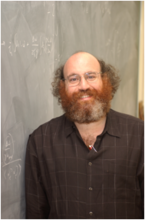The fact that ordinary matter can organize itself to exhibit functional and even intelligent behavior is a profound challenge to physics. In the past decades we have seen extraordinary progress in enumerating the microscopic components of living systems, and in many cases we even have quantitative models for how these components work together. But physics is not a collection of disconnected models. We expect that qualitatively striking phenomena have deep theoretical explanations, and that details of these phenomena follow quantitatively from concise and universal principles. Can we imagine a physicist’s understanding of life that reaches this lofty standard? I will give an optimistic survey of some current approaches to this challenge, drawing examples from a wide range of biological systems, from bacteria to brains and from single molecules to flocks of birds. Biography: The child of immigrants, I was educated in the San Francisco public schools and at the University of California at Berkeley. As a student I was fascinated by what biologists thought about, and by the way in which physicists thought. I decided that I would try to think about biological phenomena in the language and style of physics, and meeting this challenge remains my prime occupation. I’m a theorist, but some of the most wonderful parts of my scientific life have been close collaborations with experimentalists. A wise colleague once noted that the greatest honor in science is when bright young people come to work with us, and by this measure I have been honored many times over.
Physics Club: William Bialek, Princeton University and The Graduate Center, City University of New York, “The physics of life: How much can we calculate?”
Event time:
Monday, September 11, 2017 - 3:30pm to 4:30pm
Location:
Sloane Physics Laboratory (SPL)
217 Prospect Street
New Haven, CT
06511
Event description:
